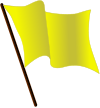- National liberalism
-
National liberalism is a variant of liberalism, combining nationalism with some liberal policies, especially regarding economic liberalism. The roots of it are to be found in the 19th century, when conservative liberalism was the ideology of the political classes in most European countries, then governed by monarchies.
National liberal parties exist today, including strongly in Austria, where it represents one of the three traditional ideological families in the country.[citation needed]
Contents
Historical national liberalism
In 19th century Germany believers in national liberalism differed from liberal nationalists in that they believed in a more authoritarian presence in Europe and a strong Germanic Empire. Liberal nationalists, such as Max Weber, were looking towards a democratic Germany in cooperation with the other European powers.[1]
The term 'national liberalism' was mainly used in German-speaking countries such as Germany and Austria during the 19th century,[2][3][4] where "National-Liberal" parties were long in government.
Modern national liberalism
In Austria, national liberalism has remained the basis of one of the three Lager, or ideological camps, in the country. Historically, this has been represented by the Freedom Party,[5] but they have recently been joined by a splinter, the Alliance for the Future of Austria.
Germany's Free Democratic Party continues to have a national liberal faction,[6] which holds a more eurosceptic position to the rest of the party.[7]
In Russia in the 1990s, Boris Nemtsov contrasted with Anatoly Chubais and Yegor Gaidar by adopting national liberalism: uniting free market reforms with an increasingly politically-authoritarian government.[8]
Footnotes
- ^ af Malmborg, Mikael; Stråth, Bo (2002). The meaning of Europe: variety and contention within and among nations. Berg Publishers. pp. 297. ISBN 1859735819. http://books.google.com/books?hl=en&lr=&id=ysBS-PYquKMC&oi=fnd&pg=PA285&dq=%22National+liberalism%22+vs.+%22liberal+nationalism%22&ots=hVtMVfNblX&sig=xuzVIECflp4Nts4fkQf0b_tqlBg#v=onepage&q=national%20liberalism&f=false. Retrieved 31 October 2009.
- ^ Verlag C.H. Beck, Germany from Napoléon to Bismarck, 1800-1866, Princeton University Press
- ^ Alfred Wahl, Les forces politiques en Allemagne, Armand Colin
- ^ Lucien Calvié, Unité nationale et liberté politique chez quelques libéraux allemands au début des années 30 and Naissance et évolution du libéralisme allemand, in Françoise Knopper et Gilbert Merlio (edited by), Notices politiques et littéraires sur l'Allemagne, Presses Universitaires du Mirail, Paris, 1835
- ^ Luther, K. R. (1988). "The Freiheitliche Partei Österreichs: protest party or governing party". In Kirchner, Emil Joseph. Liberal Parties in Western Europe. Cambridge University Press: Cambridge. p. 214. ISBN 9780521323949. http://books.google.co.uk/books?id=9IrE08SV1wEC.
- ^ Kirchner, Emil Joseph (1988). Liberal Parties in Western Europe. Cambridge University Press: Cambridge. p. 214. ISBN 9780521323949. http://books.google.co.uk/books?id=9IrE08SV1wEC.
- ^ Taggart, Paul; Szczerbiak, Aleks. The Party Politics of Euroscepticism in EU Member and Candidate States. SEI Working Paper. 51. Sussex European Institute. p. 11. http://www.sussex.ac.uk/sei/documents/wp51.pdf.
- ^ Evans, Mark (2001). The Edinburgh Companion to Contemporary Liberalism. Routledge: London. p. 273. ISBN 9781579583392. http://books.google.co.uk/books?id=We0i9AF2uYwC.
References
- Verlag Beck, Germany from Napoléon to Bismarck, 1800-1866, Princeton University Press
- Lucien Calvié, Unité nationale et liberté politique chez quelques libéraux allemands au début des années 30 and Naissance et évolution du libéralisme allemand, in Françoise Knopper and Gilbert Merlio (edited by), Notices politiques et littéraires sur l'Allemagne, Presses Universitaires du Mirail, Paris, 1835
- Alfred Wahl, Les forces politiques en Allemagne, Armand Colin
By type Anti-nationalist · Banal · Business · Civic · communist · Corporate · Cultural · Diasporic · Economic · Ethnic · Expansionist · Irredentist · Left-wing · Liberal · Pan-nationalist · Postnationalist · National-Anarchist · National Bolshevist · National conservatist · National liberalist · National mysticist · National Socialist · National syndicalist · Neo-nationalist · Religious · Romantic · Revanchist · Territorial · Transnationalist
By manifestation See also
Categories:- National liberalism
- Political ideologies
- Political theories
Wikimedia Foundation. 2010.

